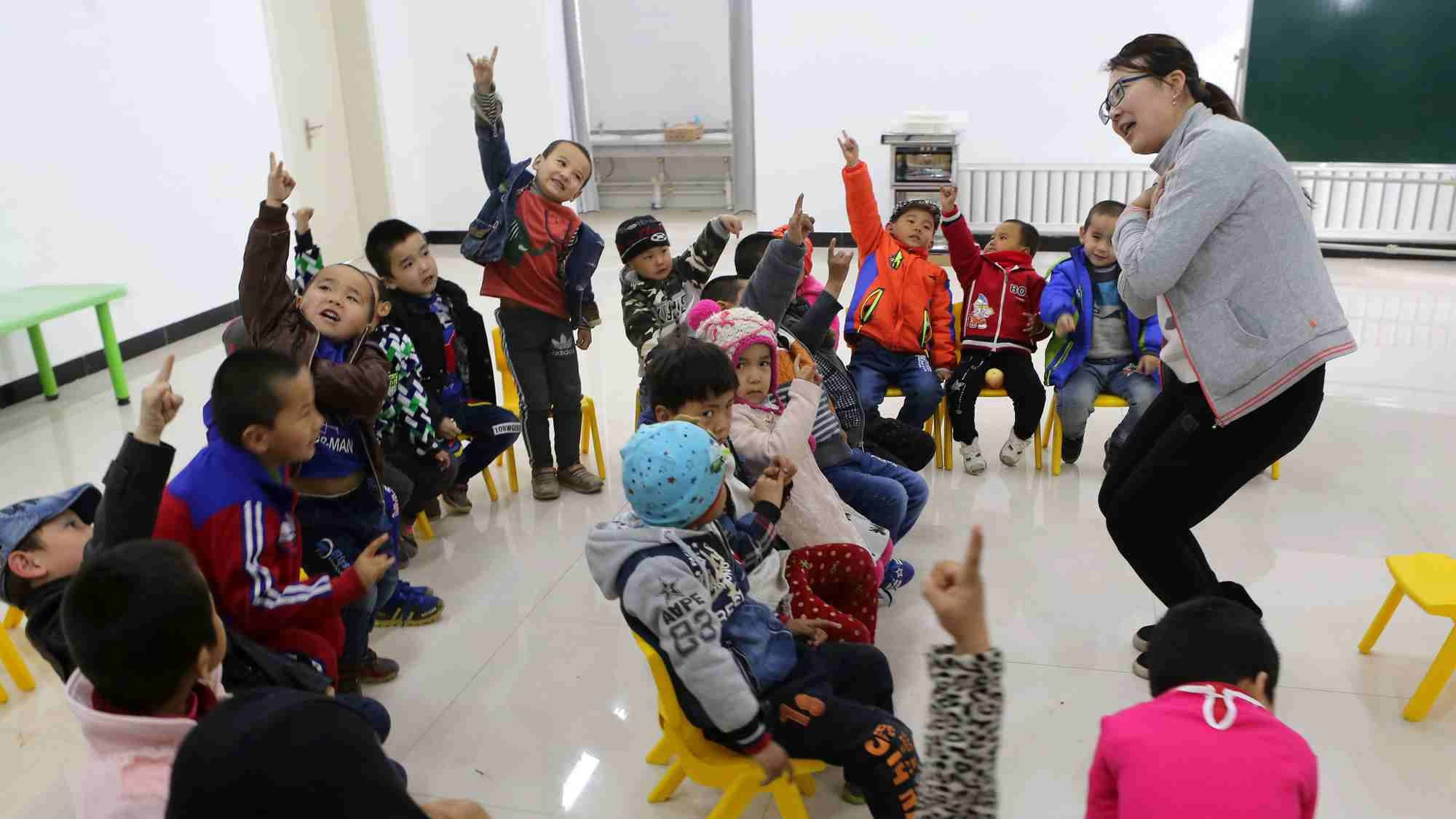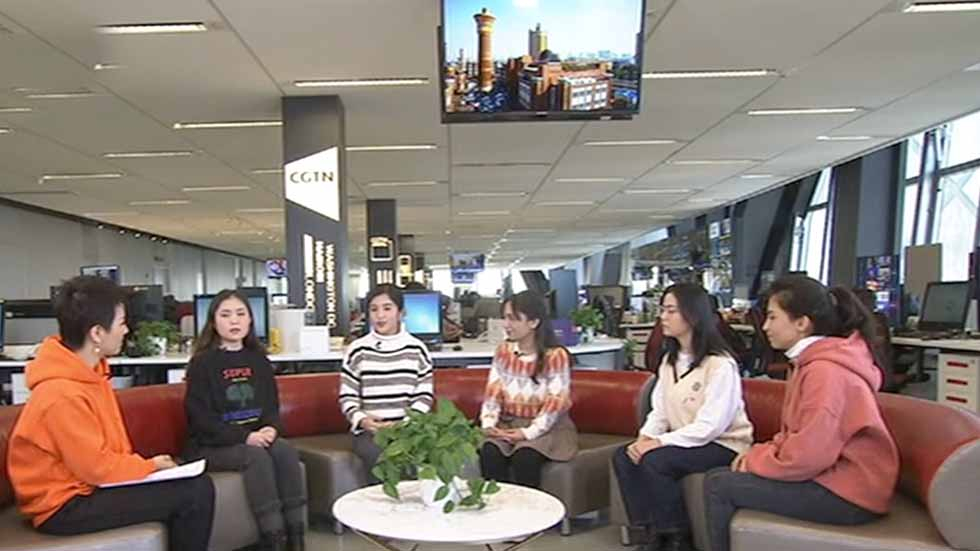
A teacher and preschoolers play games at a bilingual kindergarten in northwest China's Xinjiang Uygur Autonomous Region, March 13, 2017. /CFP Photo
A teacher and preschoolers play games at a bilingual kindergarten in northwest China's Xinjiang Uygur Autonomous Region, March 13, 2017. /CFP Photo
"The same reporter would claim the Chinese government deprives Uygurs of their right to education. No matter what the Chinese government does, they would spin it off," said Wang Cong, chief reporter from the Global Times on The Point.
His comments were in response to a recent New York Times article that alleged nearly half a million children in northwest China's Xinjiang Uygur Autonomous Region have been forcefully separated from their families to study at boarding schools.
Wang said boarding schools in China are not exclusive to Xinjiang and shouldn't be a controversial issue. "It's a nationwide campaign to provide students more access to education," he added.
The article also said that "many rural families are eager to send their children to these schools, especially when they are older."
Rural students in Xinjiang enjoy not only free accommodation and food at boarding schools but also subsidies. For example, students in Xinjiang receive a subsidy of around 120 to 280 U.S. dollars a year depending on their age.
00:14

Victor Gao, Vice President of the Center for China and Globalization, said the Western media missed a mega point that all kids need to be educated. He pointed out that there has been a wave of radicalization in Xinjiang, which resulted in some Uygur families forbidding their children from attending school.
"[They] fear that if you send your kids to public schools, the kids will have to learn Mandarin, and they can be exposed to Chinese culture that will really deprive them of their Uygur or Muslim heritage. This is far from the reality on the ground," he elaborated.
Dilnur Rusul, a student from Xinjiang who studies at Beijing-based Capital Normal University, supported Gao's point. "Although we're all learning Mandarin, we will certainly not forget our mother tongue. While learning Mandarin, we will develop our own culture as well," she said.
The Point with Liu Xin is one of the main current affairs programs on CGTN. The 30-minute program comments on global news through Liu Xin's very own unique perspective. With two decades of experience as a news anchor and overseas correspondent, Liu Xin has an engaging and personal style. The Point with Liu Xin connects world audience through social media, enhancing their participation as well as offering a comprehensive perspective on world events.
Schedule: Monday-Friday
Time (GMT): 1330, 2130, 0230
(If you want to contribute and have specific expertise, please contact us at opinions@cgtn.com.)